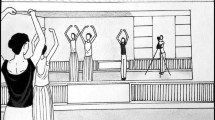Conclusion
I have tried, here, to raise a number of questions which challenge the normal practice of Anthropology and I have tried to show why such a challenge needs to be formulated at all. It should be clear by now that the initial step — without which the effort to hear the Other's challenge would have been hopeless from the beginning — must be to seek forms of social action which do not silence the Other's full “voice” at the outset, which do not abstract it from its context, and which allow it to be heard in a critical address to the Self. Only in conceiving such forms and working towards them (and the Other's voice must be heard at the earliest possible stages of this process) can Anthropology and social action in general begin to embrace its own vulnerability. The failure to do this leads, as we have seen, to either a monologue (as with Radin's voice of the Other or the comparativist's voice of the Self) or to an antilogue (as in the relativist approach), where both Self and Other speak but not to one another.
The “event + dialogue” form which the Faqir and I settled on during one stage of my fieldwork suggests an alternative to this practice; but it should be emphasized that this alternative is in no sense meant to be definitive. At best, such a record testifies to several aims: to convey faithfully the power of the Other; to demonstrate the need to seek new forms of the anthropological and the Western project which will recognize their wager aspect and the inherent vulnerability; and to strive for a critical examination of this record's own success or failure in achieving these objectives.
The event + dialogue form must thus be looked at not as a model but as a suggestive metaphor for social action and for an Anthropology which embrace their wager character. It cannot provide a model for, just as the confrontation between the West and other human groups is not summarized in all its complexity by Anthropology, and just as fieldwork does not encompass all phases of Anthropology, neither does this record, as event + interview, exactly reflect the fieldwork experience. But the focus on Anthropology, on fieldwork, and on the event + interview, is not arbitrary — it carries a particular significance: it marks the desire to take that moment of the Western encounter with the Other where the Western project is at its most vulnerable, most deeply called into question and to penetrate the shield of immunity that has been constructed around it. If we can begin to do this here, perhaps we can then move toward restituting vulnerability to those other aspects of the confrontation where the Self is even more heavily protected.
Similar content being viewed by others
Additional information
Kevin Dwyer is an anthropologist, and currently directs Middle East affairs for Amnesty International.
Rights and permissions
About this article
Cite this article
Dwyer, K. The dialogic of ethnology. Dialect Anthropol 4, 205–224 (1979). https://doi.org/10.1007/BF00243821
Issue Date:
DOI: https://doi.org/10.1007/BF00243821




